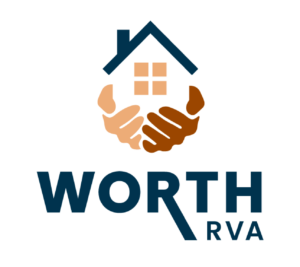Housing
Why is Housing Important?
Availability of housing that is decent, safe, and affordable for a wide spectrum of people and families across the region impacts so many quality-of-life issues—families passing on generational wealth, longevity, healthy children, safe neighborhoods, access to employment and services, and the ability of a community to thrive and grow economically.
The demand for housing currently exceeds the supply, which drives up prices and limits the availability of housing that meets the various needs of families. The Great Recession of 2007–2012 caused a sharp decline in housing construction, leading to a persistent shortage that continues despite steady increases in housing production. This production trend, which shows a downturn followed by gradual growth, is illustrated in the graph titled “Building Permits in the PlanRVA Region”. Insufficient construction rates, a growing yet aging population, racial disparities, and the fact that housing costs have outpaced household incomes all contribute to today’s housing crisis.
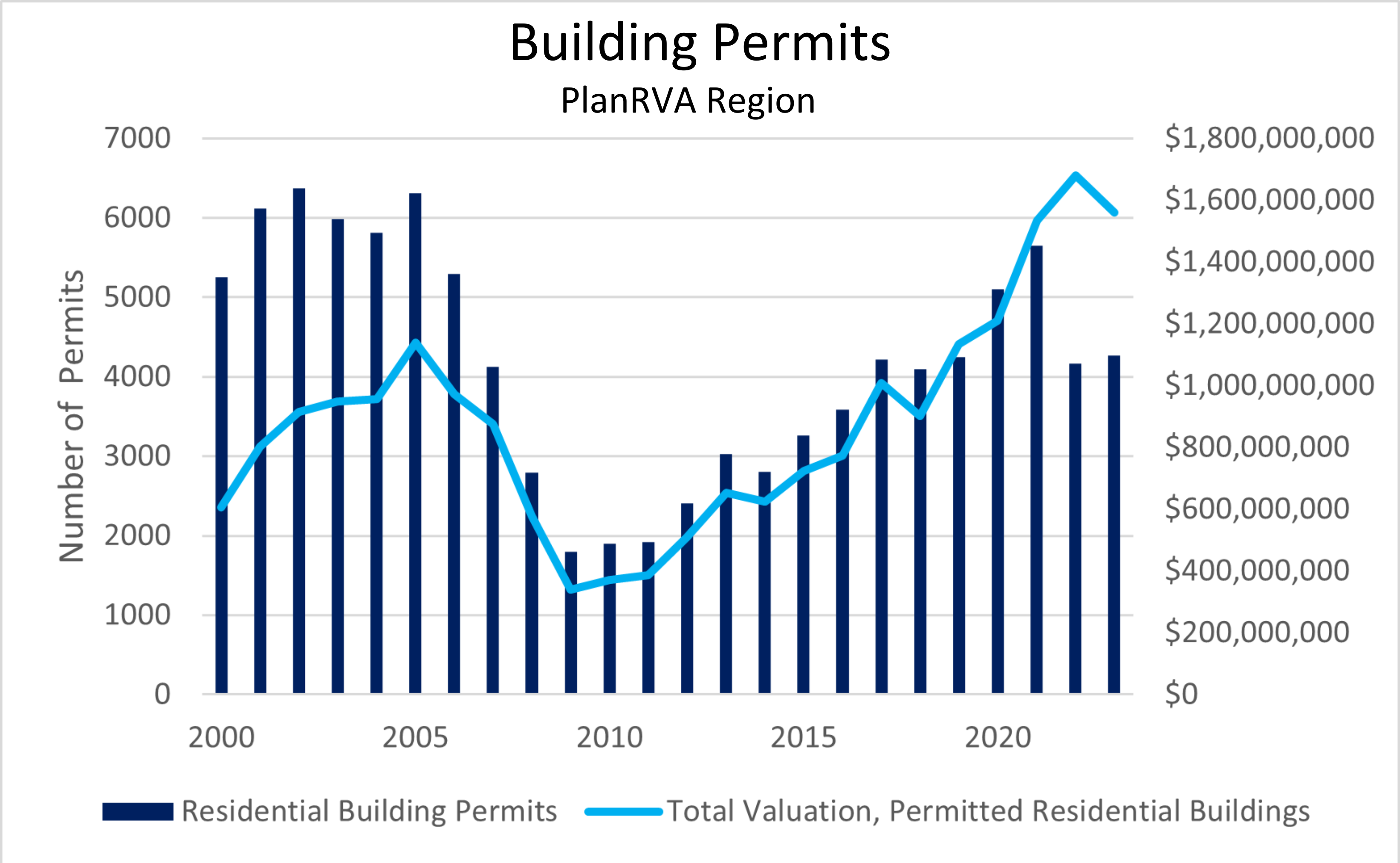
Housing affordability is a challenge for both buyers and renters. In 2021, the average price of a new home in the Richmond region was approximately $400,000. Just four years later, that average had risen to $500,000.
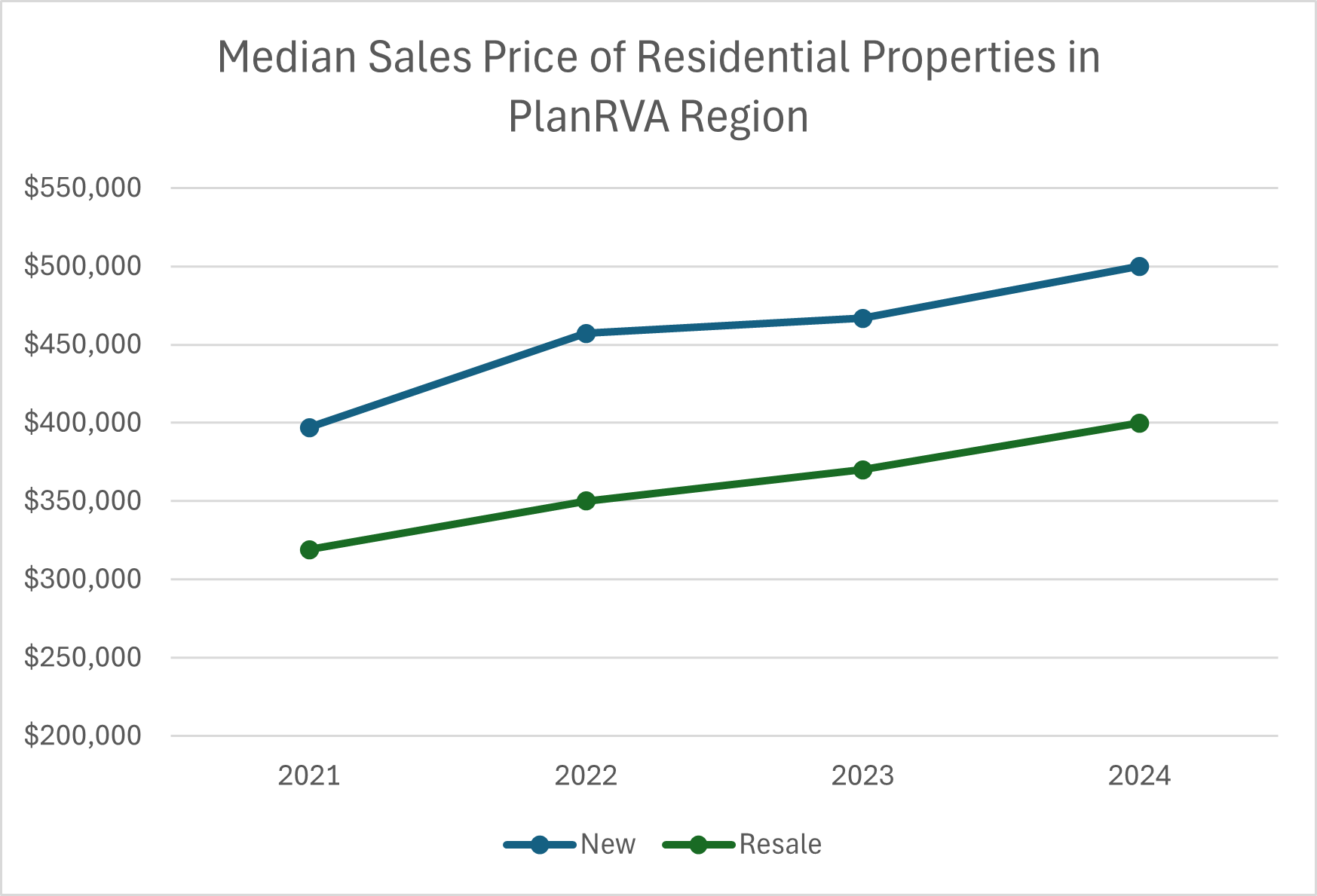
Rent is becoming increasingly expensive across the PlanRVA region. Between 2019 and 2024, the region’s three largest localities—Chesterfield County, Henrico County, and the City of Richmond—experienced significant rent increases even after accounting for inflation. Adjusted for inflation (+22%), rent prices rose by 16% in Richmond, 14% in Henrico, and 20% in Chesterfield.
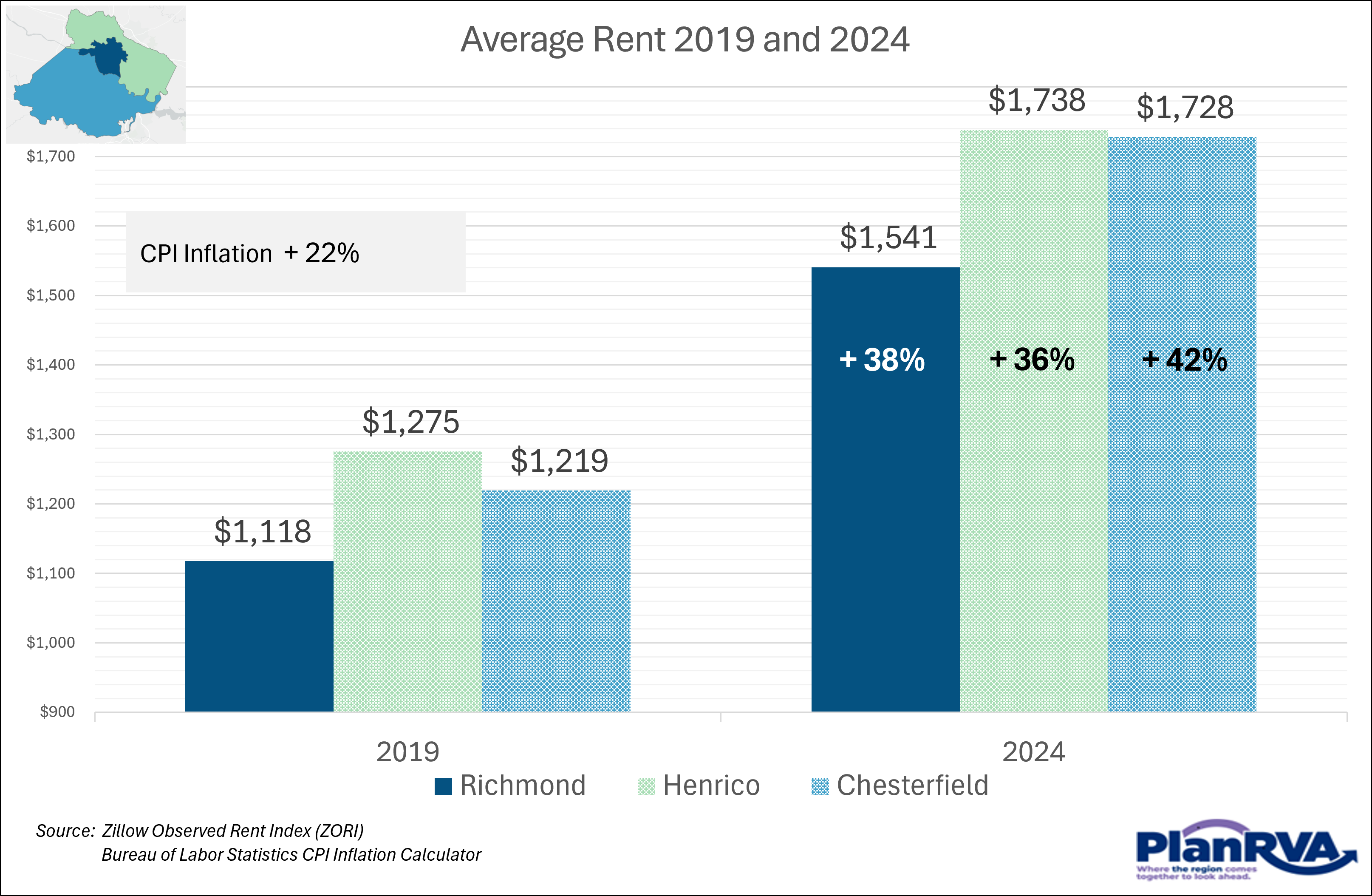
Between 2015 and 2024, both the Consumer Price Index (CPI) inflation rate and the Metropolitan Statistical Area (MSA) average rent price have risen. However, the widening gap between their trend lines shows that MSA rent prices are outpacing CPI inflation.

Decades of segregation, discriminatory lending practices and policies, and racial covenants have led to worse housing outcomes for people of color. While there are Fair Housing laws in place now, these long-term effects persist today. Homeownership rates, both nationally and in the PlanRVA region, are disproportionately higher among white residents. Since homeownership is a key driver of wealth accumulation, this disparity continues to reinforce racial economic inequality. Since 2012, homeownership rates among white households have consistently remained above 70%, while Black homeownership has hovered around 50%, and Latino homeownership has remained below 50%.
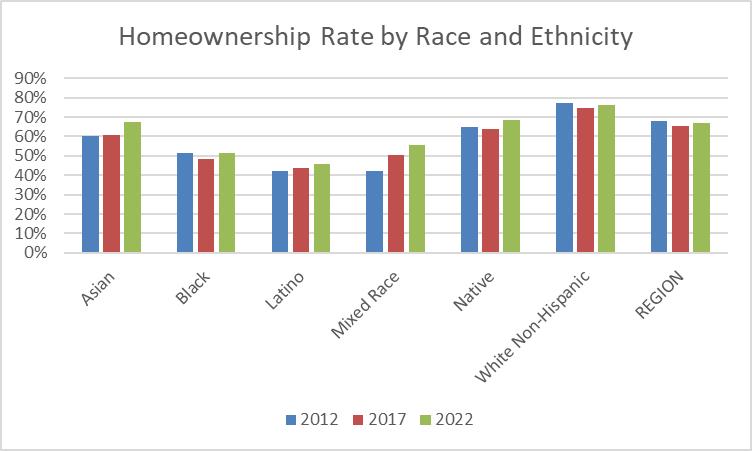
Policy and Practice: Housing Supply, Diversity and Affordability
PlanRVA works with localities and partners to assess housing challenges, shape policies, and support planning efforts that address local and regional housing needs while meeting federal program requirements.
Partnership for Housing Affordability (PHA) and the Richmond Regional Housing Framework
The Partnership for Housing Affordability (PHA) is a nonprofit organization focused on promoting policies, developments, and programs that respond to the housing needs of the Richmond region. PlanRVA uses PHA’s Regional Housing Framework as our regional strategy guide for housing. PlanRVA supports PHA in advancing the goals and solutions in their Richmond Regional Housing Framework through:
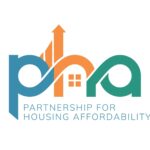
- Partnering with PHA to implement the Virginia Housing Planning District Commission (PDC) Grant
- Serving as a data partner for RVA Rising, the Market Value Analysis, Analysis of Impediments to Fair Housing
- Working together to support the needs of our local governments, particularly our smaller localities
To learn more about PHA’s efforts to ensure healthy, stable, and affordable housing across the Richmond region, explore the Framework’s Goals and Solutions here.
Virginia Housing Planning District Commission Grant
In 2021, PlanRVA was granted $3 million in funds from Virginia Housing through the PDC Virginia Housing Grant program to support the construction of new affordable housing units for those in the greater Richmond region making 80% of less of Area Median Income (AMI). The program had a four-year performance period between July 2021 and June 2025.
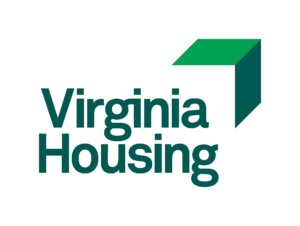
PlanRVA has collaborated with the Partnership for Housing Affordability (PHA) in this effort, recognizing PHA’s dedication to affordable housing and shared focus on regional collaboration. PHA manages the grant funds, in turn partnering with non-profits in the region including Habitat for Humanity.
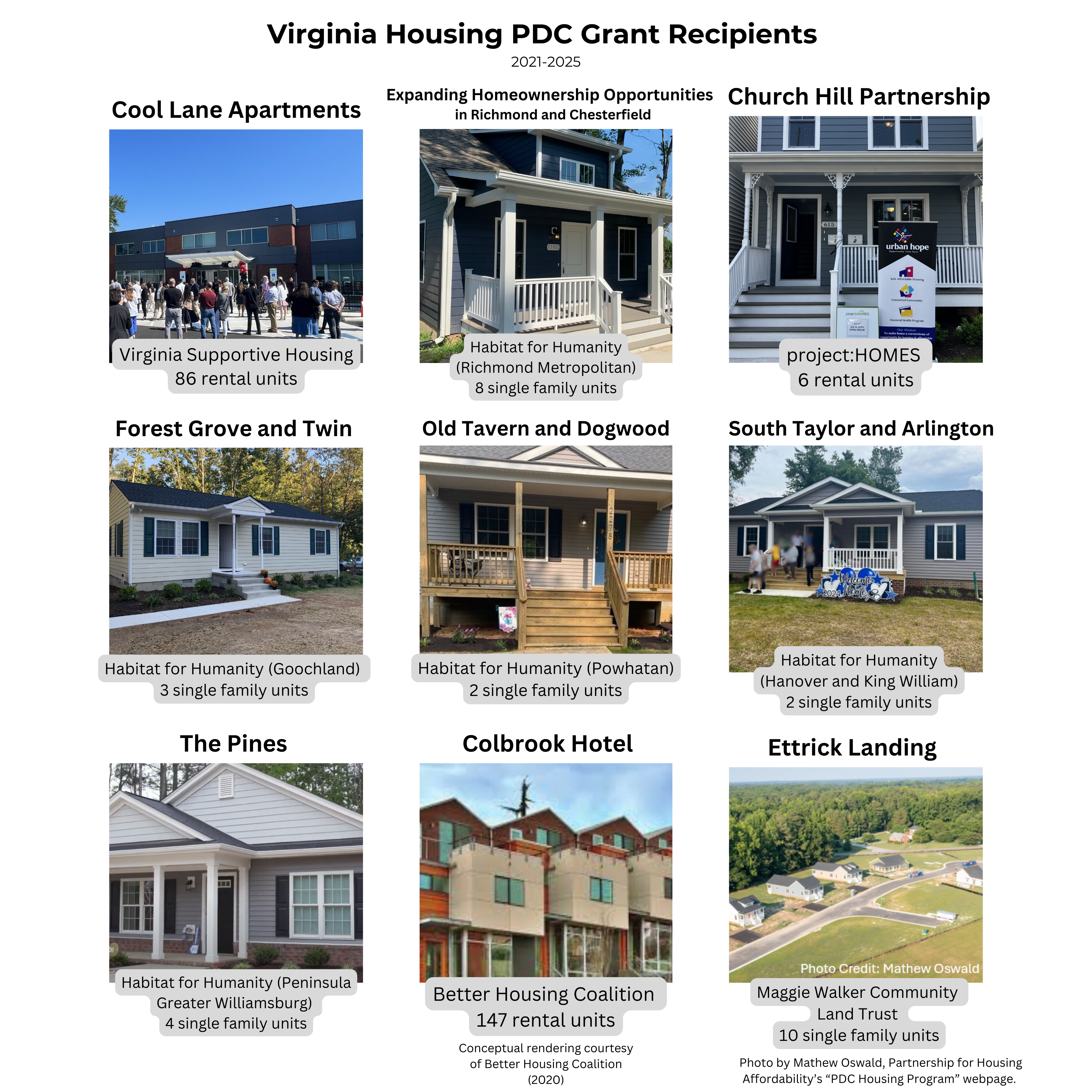
Analysis of Impediments (Fair Housing)
PlanRVA helps support the work of localities in meeting Title VIII of the Civil Rights Act of 1968, known as the Fair Housing Act. In 2020, several localities in the region and the Tri-Cities area collaborated to analyze impediments to fair housing choice. Read the study and its findings here.
Housing Data & Analysis
Regional Indicators - Housing
PlanRVA and our regional partners have worked together to create a housing and economic data dashboard for public use. The dashboard tracks and measures indicators of the region over time based on the Urban Institute’s Upward Mobility Framework, which identifies five essential pillars that support mobility from poverty, including:
- Opportunity-rich and inclusive neighborhoods (which includes housing affordability and transit access)
- High quality education
- Rewarding work
- Healthy environment and access to good healthcare
- Responsible and just governance
This data tracking effort will allow the region to measure progress over time as part of the regional effort to create and activate an Action Framework for Equitable Economic Mobility.
Market Value Analysis
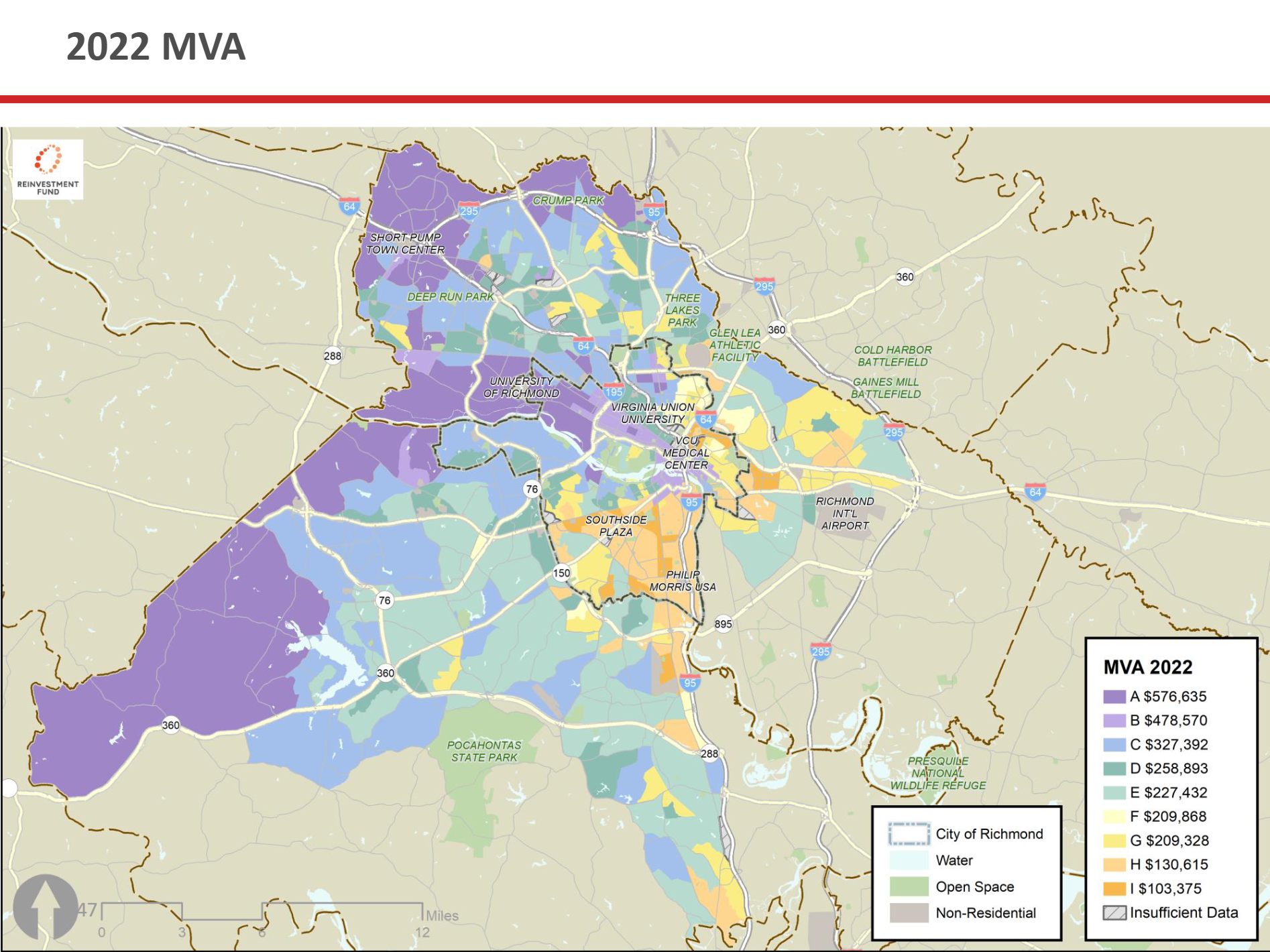
PlanRVA has supported two Market Value Analysis (MVA) efforts in the region. A Market Value Analysis is an in-depth analysis and depiction of a community's housing market. Created on a small geographic scale, it reveals the mosaic of market conditions.
- In 2017, the first MVA for the Richmond Region was completed by the Richmond Memorial Health Foundation (RMHF). The 2017 MVA was ultimately incorporated into the award-winning Richmond 300 Master Plan. That plan recommended updating the MVA every few years.
- In 2021, RMHF partnered with PlanRVA to conduct a second MVA, which was completed in 2022. Read about the 2022 MVA results here.
Homeless Point in Time (PIT) Count
PlanRVA assists with data collection and mapping for the Richmond region’s annual homeless point in time (PIT) count, led by Homeward. PlanRVA uses aggregated data from the PIT to help inform multiple types of planning efforts. More information about the process, data, and ways to receive or give help, is available here.

Wealth Opportunities Realized Through Homeownership (WORTH)
PlanRVA is a member of the regional WORTH Collaborative and assists with data analysis and reporting. “Members of the Collaborative implement regional plans catered to their communities. These plans center grassroots outreach and housing counseling for families in underserved areas that have historically experienced systemic barriers to homeownership. In addition to housing counseling, the initiative provides downpayment assistance to eligible families based on their need” (LISC Virginia).
Read more about the WORTH program here.
